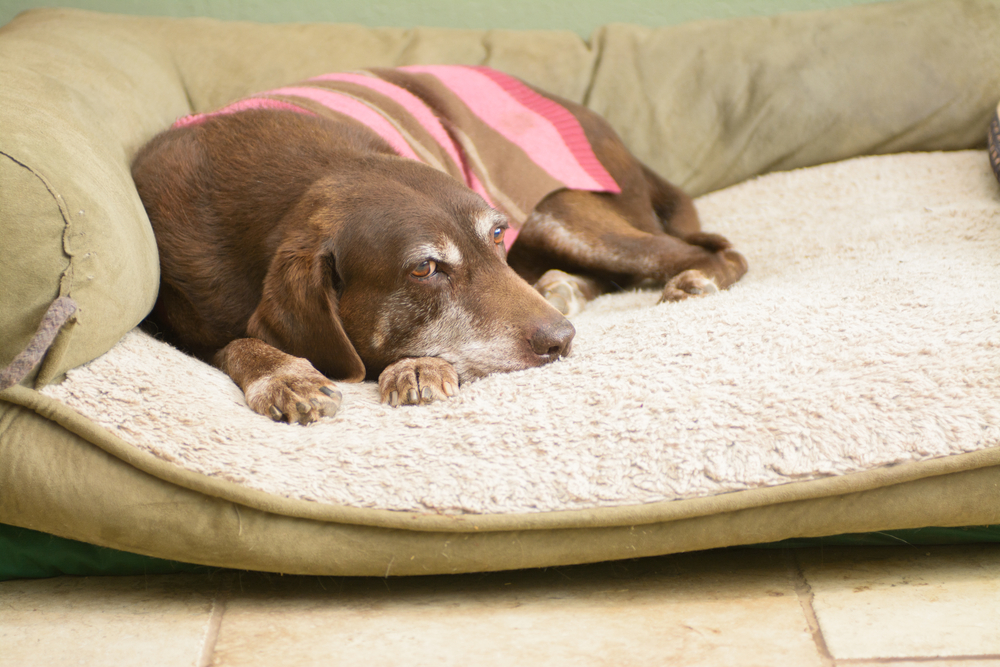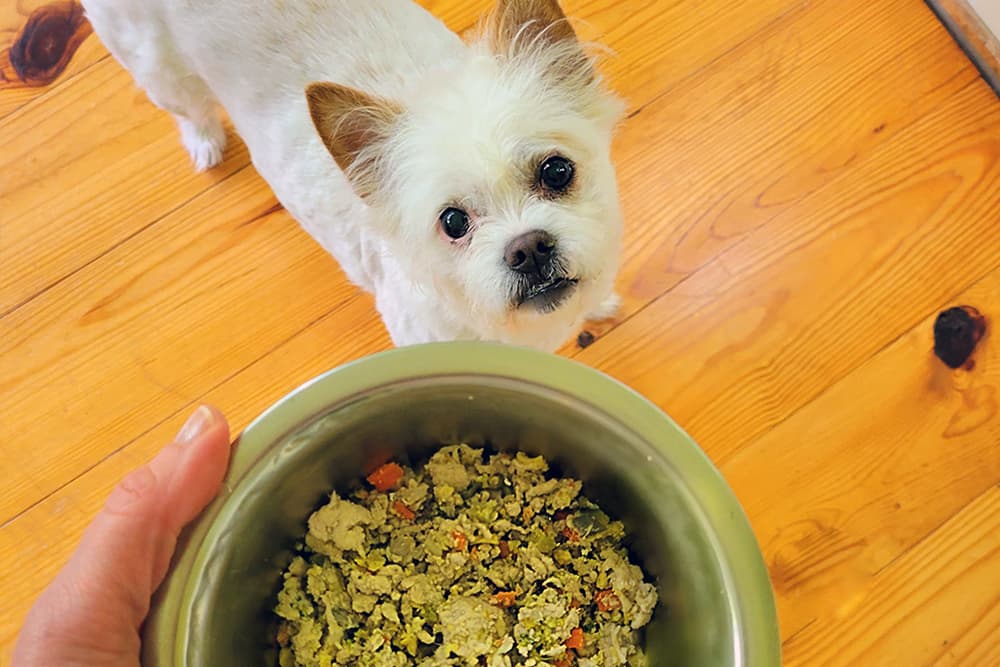Your Senior Dog: 16 Years and Beyond
Updated on May 07, 2024

Pat yourself on the back. You’re a great pet parent. For senior dogs 16 years and beyond, it’s because he’s had a well-cared-for life. Now it’s up to you to make his twilight years the best they can be.
All featured products are chosen at the discretion of the Vetstreet editorial team and do not reflect a direct endorsement by the author. However, Vetstreet may make a small affiliate commission if you click through and make a purchase.
Physical and Mental Development
A 16-year-old dog, depending on his size, is roughly the equivalent of an 80- to 123-year-old person.
Like elderly humans, your dog is moving more slowly and sleeping more than he did in his spryer years. He may be showing signs of cognitive deterioration as well. You might notice that he seems to wander off if not watched carefully and can’t find his way around familiar surroundings.
Thanks to painful or stiff joints, he may avoid situations he finds uncomfortable, like climbing stairs or jumping into the backseat of the car. Perhaps he doesn’t seem to have the appetite he once did, and he might seem restless, even though he sleeps more. Other pets in the household might start to pick on him as he ages, which can affect his place in the “pack.”
Some medical problems are inevitable at this point. Arthritis, cancer, heart and lung problems, kidney or liver malfunction, and endocrine disorders are common.

Behavior Changes
At this stage in your dog’s life, his personality may change and he may become more withdrawn. Elderly dogs often become loners, preferring to sleep in peace and quiet.
He might even become short-tempered. You will want to carefully monitor interactions between your elderly dog and small children. A formerly patient dog may become more aggressive, even with well-meaning play.
Your dog might vocalize more than he once did, and you may not know why. He also may seem to become disobedient, which is not a willful disregard for obedience, but rather a reaction to the physical or mental changes happening in his body.
Spend more time with your dog and tell them you love them, even if they cannot hear. They may enjoy a snuffle mat for mental stimulation.
He may have significant hearing and/or visual deficits, making it more difficult for him to interact with you and his surroundings. He may find getting up and going outside to go to the bathroom painful, or he might simply forget to let you know he needs to go out, resulting in more frequent accidents. Many medical conditions also can lead to reduced mobility, changes in drinking or urination, or incontinence, so never assume that a behavior change is due merely to the aging mind.
Health and Nutrition
Expect your dog to develop a more sensitive stomach. Kidney or liver problems also are common at this age and can affect the type of food he should eat. Consult with your veterinarian to determine the best diet to match your dog’s age and health status.
You will want to take your senior dogs 16 years and beyond to see a veterinarian at least twice a year. By now, more frequent veterinary visits are probably required to monitor his overall health, existing medical conditions and medications.
If your dog gets stressed at veterinarian visits, you may want to use a pheromone calming spray such as Adaptil’s, which can be helpful for travel and stressful situations.
While at your next veterinary visit, ask about adding a high-quality probiotic to your dog’s diet. Great Poop offers a combination of prebiotic, probiotic, and digestive enzymes in a chewable form. Dogs of all ages love the chicken flavor, and pet parents love that it is made in America.
If your senior dog has a difficult time chewing treats, consider something softer like grain-free Buddy Biscuit Softies that are made in the USA.
Zesty Paws offers a Healthy Aging product you may want to consider. It supports cardiovascular health, brain health, and more.
It is never easy, but as a pet owner and companion, you know that these are your dog’s twilight years. Don’t wait for a catastrophic illness before you discuss quality-of-life issues with your family and veterinarian. You will find that it is a bit easier to make difficult decisions if you have had a chance to think them through and discuss them before matters are urgent.

Your veterinarian can help you understand how your dog is feeling and his level of comfort, and can advise you on what courses of action are appropriate. Finally, when the time does come, your veterinarian also can help you to recognize signs that the end may be near.
Some families choose euthanasia when they realize their beloved dog is at the end of life and losing mental and physical functions. Others choose to keep their dog at home and nurse him until the end. Your veterinarian can help you understand your choices, as well as assist you in keeping your dog as comfortable and happy as possible, even in his last months and days.
With all the pain-management options available today, it is possible to keep dogs comfortable longer. Your veterinarian can tell you signs to look for to tell if your dog is uncomfortable and in need of additional care. For example, excessive panting, reclusiveness, suddenly being picky about food, or a reluctance to move all can be signals that your dog is in pain and may require medical attention.
Keep Your Dog Healthier With Pet Insurance
As your dog approaches the end of their life, it’s important to have pet health insurance that can help you pay for unexpected health expenses, surgeries, or medications. We recommend purchasing insurance before there’s a problem. While insurance for your senior dog may add to your monthly expenses, it can save you hundreds or thousands of dollars in the long run.
Don’t ever let financial decisions get in the way of your senior dog’s care. Review personalized options for your pet below:
Training Tips
Dogs that have weathered life and made it to this age are likely not interested in training. You can keep reviewing basic commands and expectations, but as your dog continues to age, he will likely forget. Be patient and loving, and just enjoy his company. He may be able to teach you a lot about aging gracefully.





